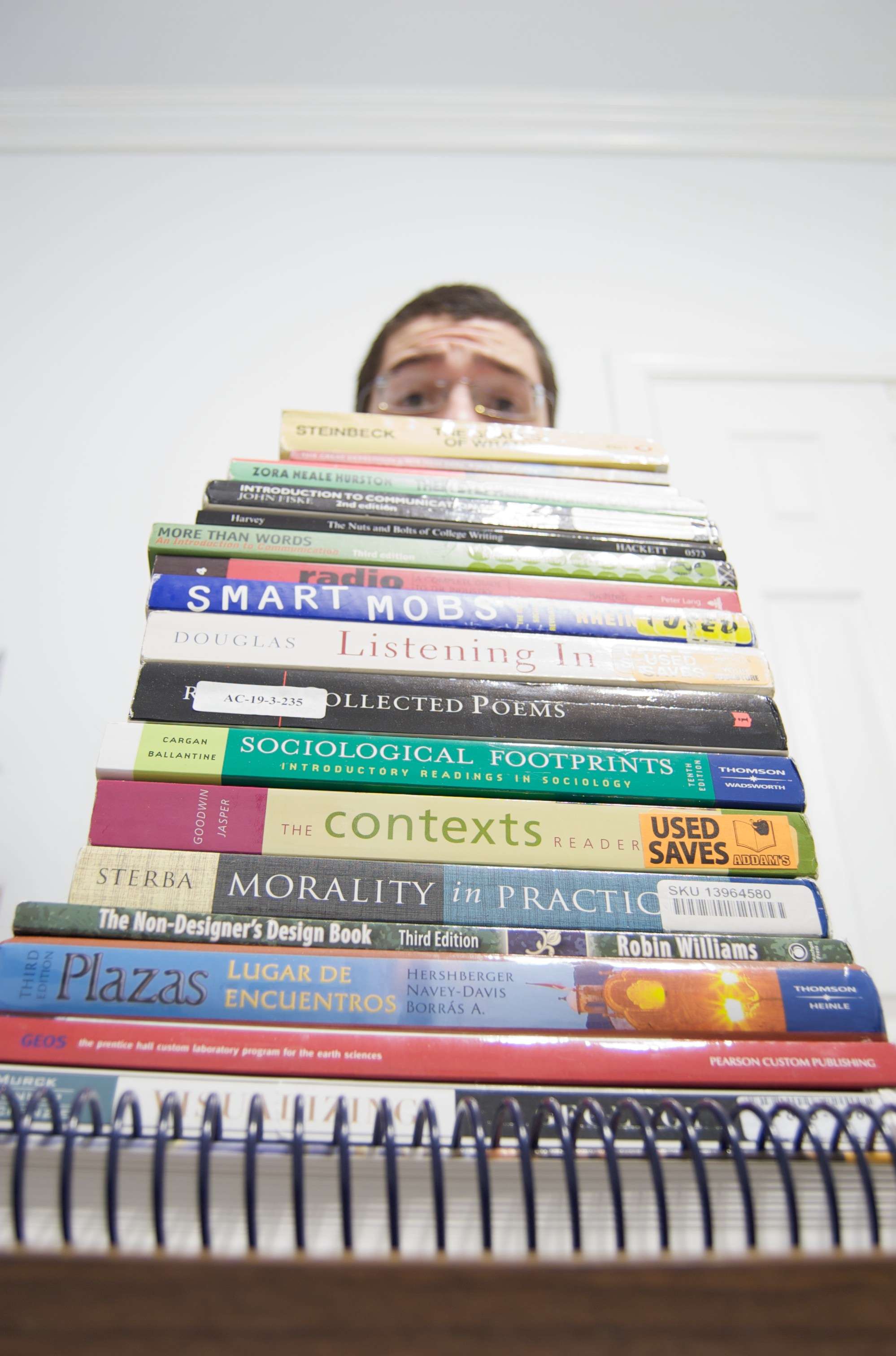College Students Increasingly Illegally Downloading Textbooks for Free
Who could blame them?


As students settle into the new academic year, they're also getting savvier about the high costs of their education. "It's hard (if not impossible) to know just how prevalent this practice is," writes Valerie Strauss of The Washington Post, but "more students are illegally downloading college textbooks for free."
She highlights a survey last month from the Book Industry Study Group, which had some major takeaways:
- Students report a gradual decline in the use of both core textbooks and learning management systems with a somewhat increased usage of online study guides, suggesting that pedagogical material is becoming more flexible in ways students value.
- Students continue to become more sophisticated in acquiring their course materials at the lowest cost as illicit and alternative acquisition behaviors, from scanned copies to illegal downloads to the use of pirated websites, continue to increase in frequency.
The group surveyed 1,600 students, 25 percent of whom said they or someone they knew illegally downloaded textbooks. That's up 8 percent from the previous year.
Strauss also notes data from a 2013 Government Accountability Office study. It shows that textbook prices nearly parallel the astronomical inflation tuition and have gone up 82 percent in the last decade. An American Enterprise Institute Paper indicates that in the last 35 years textbooks have gone up a jaw-dropping 812 percent – hundreds of percentage points higher than general consumer prices, new houses, or even medical services.
Although students do by a wide margin prefer hard copies of their coursework and illicit copies can be spotty, any kid clever enough to get into university ought to realize that spending on average over $1,000 annually on books that have virtually no application and little resale value the day the semester ends is not a wise investment.
Deep web news site Vocativ.com challenged itself to find books for a range of classes at different universities and was able to get them "one by one" almost "immediately." They found "Ebookee and TextbookRevolution, [which] focus more on math and science textbooks. Others, like Free-ebooks and Freebookspot, have a deeper selection of humanities-related tomes." They also found success with a site called Textbooknova.
"It's so easy to find somebody posting a scanned copy" online one master's student at George Washington University recently told The Wall Street Journal. The Journal that it's also easy to just rent, borrow, or completely forego textbooks, so publishers are spiting themselves with their high prices.
Textbooks are just the tip of the iceberg of university costs. More and more young people are opting out of traditional college as debt soars and they realize that trade schools, code academies, and other alternatives like massive online open courses are quicker, more effective paths to education and employment.


Show Comments (69)